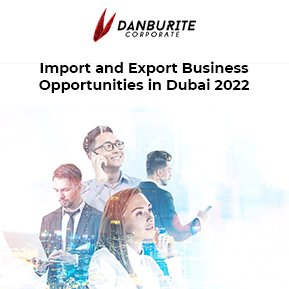UAE's National Register for Carbon Credits
The UAE Cabinet issued Cabinet Resolution concerning the establishment of a National Register for Carbon Credits. This resolution forms part of the UAE’s broader strategy to address climate change by establishing a regulatory framework to monitor, verify, and trade carbon credits. Given the growing global emphasis on reducing greenhouse gas (GHG) emissions, this legislation reflects the UAE’s commitment to achieving climate neutrality by 2050.
This blog provides an in-depth look at the objectives, applications, and implications of Cabinet Resolution, and how it may impact entities operating in the UAE.
Objectives of the National Register for Carbon Credits
The primary goal of the resolution is to reduce GHG emissions across the UAE, targeting both large-scale emitters and those with smaller carbon footprints. By establishing a National Register for Carbon Credits, the government aims to:
- Track and document carbon reductions for entities of various sizes.
- Facilitate trading in carbon credits, thereby creating a structured market for emissions reduction.
- Encourage transparency and accountability in emissions reporting and verification.
- Achieve climate neutrality by 2050, aligning with the Paris Agreement and the UAE's own nationally determined contributions (NDCs).
Key Definitions Under the Resolution
The resolution introduces key definitions essential to understanding the scope of the law:
- Carbon Credits: Certificates representing a reduction in carbon dioxide equivalent emissions. These credits can be traded on designated platforms, allowing entities to offset their emissions.
- Entities of Huge Carbon Emissions: Organizations with emissions exceeding 0.5 million metric tons of CO₂ equivalent annually. These entities are typically large industries or sectors with significant environmental footprints.
- Participating Entities: Organizations with emissions below 0.5 million metric tons of CO₂ equivalent, which voluntarily participate in carbon credit trading to enhance their sustainability profiles.
- Carbon Retirement: A procedure for withdrawing carbon credits from circulation to adhere to specific emission caps.
These terms underscore the inclusivity of the resolution, as it applies to both major emitters and entities committed to reducing smaller-scale emissions voluntarily.
Scope of Application and Compliance
The scope of Cabinet Resolution is wide-reaching, covering both financial and non-financial free zones across the UAE. The resolution mandates compliance for:
- Entities of Huge Carbon Emissions: Organizations emitting over 0.5 million metric tons of CO₂ equivalent annually, which must register with the National Register for Carbon Credits and implement monitoring and verification systems.
- Participating Entities: Organizations with emissions below 0.5 million metric tons that may voluntarily register and trade in carbon credits.
Furthermore, a trading platform for carbon credits will facilitate transactions, providing a market mechanism to incentivize emissions reductions and promote sustainable practices. The Cabinet retains the authority to modify the emission thresholds and include additional sectors as needed to meet evolving climate targets.
Emissions Monitoring, Reporting, and Verification
Articles (4) and (5) of the resolution outline the requirements for monitoring, reporting, and verification of emissions, which are essential for transparency and integrity in the carbon credits market.
Monitoring Emissions: Entities are required to use the latest methodologies and guidelines from the Intergovernmental Panel on Climate Change (IPCC) to prepare comprehensive GHG emissions inventories. The National System for Monitoring, Reporting, and Verification, an electronic tool established by the Ministry, is pivotal for assessing emissions reductions against a 2019 baseline.
Reporting Emissions: Organizations must submit annual emissions reports to the Ministry of Climate Change and Environment and the relevant authorities. These reports should adhere to international standards, including those outlined by the IPCC and the Paris Agreement.
Verification: All emissions reduction reports undergo a verification process conducted by approved verification agencies. This audit, adhering to standards set by the International Organization for Standardization (ISO), ensures that entities meet stringent guidelines and accurately report their emissions data.
Trading Platform for Carbon Credits
The establishment of a Trading Platform for Carbon Credits introduces a structured market for carbon credits in the UAE. This platform enables entities to buy or sell carbon credits, providing a financial incentive to reduce emissions. It will facilitate both domestic and international trading, thus broadening access to global carbon markets. The platform aligns with the UAE's ambitions to become a regional leader in carbon credit trading, leveraging its strategic position as a hub for clean development.
Regulatory Compliance for Entities with Huge Carbon Emissions
Entities with significant carbon emissions must meet compliance standards through continuous monitoring and reporting. They are also required to retire carbon credits to adhere to specified emissions ceilings. This approach, often referred to as carbon retirement, ensures that companies systematically reduce their net emissions over time, contributing to the UAE’s climate neutrality goals.
Voluntary Participation for Smaller Emitters
Smaller organizations emitting under 0.5 million metric tons annually are encouraged to participate voluntarily. This participation helps such organizations not only improve their sustainability practices but also enhance their market appeal by aligning with global climate standards. By trading carbon credits, these entities can offset their emissions or support other companies in reducing their environmental impact.
Aligning with International Standards
The UAE's strategy aligns with global best practices, including protocols established by the Kyoto Protocol and Paris Agreement. The inclusion of mechanisms like the Clean Development Mechanism (CDM) and carbon removal reflects a comprehensive approach to tackling climate change.
For instance:
- Carbon Removal: Activities to absorb, isolate, and detain carbon through natural or technological means, contributing to the UAE’s long-term sustainability objectives.
- Carbon Border Tax: An emerging policy that imposes a tax on high-carbon imports, encouraging cleaner production practices and supporting local industries that adhere to emissions standards.
These elements underscore the UAE's dedication to integrating its climate policies with international frameworks, strengthening its environmental resilience.
Future Implications for Businesses in the UAE
The Cabinet Resolution represents a transformative shift for businesses, particularly for industries with high emissions. Entities will need to invest in advanced emissions management systems, integrate sustainability practices, and perhaps explore partnerships for carbon offset projects. Moreover, compliance with the resolution could result in a competitive advantage, as companies increasingly favor suppliers and partners committed to sustainability.
Cabinet Resolution No. (67) of 2024 is a bold step by the UAE towards realizing its climate ambitions, providing a structured framework for monitoring, reducing, and trading carbon emissions. By establishing the National Register for Carbon Credits and facilitating a carbon trading platform, the UAE is positioning itself as a leader in the fight against climate change.
Through the National Register for Carbon Credits, businesses in the UAE will not only contribute to global climate efforts but also reap long-term benefits, both economically and reputationally, by aligning with sustainable practices. As the UAE progresses toward its 2050 climate neutrality goal, entities must stay informed and proactive in complying with these regulations to ensure a sustainable and prosperous future.






























